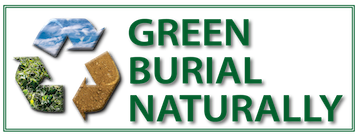"What's the one thing you have to do to get to heaven?" was the ice-breaking question asked at my first Death Cafe. The people sitting in a circle of folding chairs came up with all sorts of possibilities. After four or five answers, Marilyn told us.
"You have to die."
We looked at each other, and relaxed. This wasn't going to be a morbid, or religious, chat. Possibly it could be fun.
I've written and posted about Death Cafes for a couple years now, and yesterday finally got my chance to attend what sounds on the surface like one of the more peculiar discussion groups "with no agenda, objectives or themes...(not) a grief support or counseling session." "At a Death Cafe people drink tea, eat cake and discuss death. Our aim is to increase awareness of death to help people make the most of their (finite) lives" (www.deathcafe.com). The Death Cafe model was developed in London, has no staff, and is run in local groups on a volunteer basis by people like Stephanie Kip, founder of this cafe in northern New Jersey, who are dedicated and not afraid to spend alot of time shepherding something along. There have been 4645 Death Cafes in 49 countries since September 2011.
Death Cafes always gather around food and drink and talk. In green burial we emphasize communication; making it easier for families to discuss afterdeath options and death in general. I'd come partly to peddle The Natural Burial Cemetery Guide and was startled to realize when the moderator, a pastor at a local United Methodist church, asked us to introduce ourselves and say why we were there, I could talk for hours about green burial but I don't really address my own death. Yet there I was.
The subject for the cafe was obituaries: What would someone say about us or inscribe on our tombstone if we had to put aside our accomplishments? There were 12 people and we split into two groups. Most were older than me but everyone was there because it was a space to not feel strange about discussing death. Half had been to at least one previous meeting.
As I worked overtime to think of myself outside the box of what I have done professionally, only pat answers occurred until I realized that my coming to child- and eldercare relatively late in life had made me into an empathic person.
"As a teenager I was afraid to babysit, but you could say about me that now I have a profound understanding that what I do and say is remembered by children and affects their lives."
Why shouldn't we come up with the good stuff about ourselves while still alive? When my father died my family gave our mother the gift of a celebration of their joint lives rather than a memorial service for just him.
After sharing, we discussed the future of this Death Cafe, which had been meeting for free in the library where Stephanie worked. She was retiring her job and we'd have to pay going forward, which isn't part of the cafe plan. Nor did we want to be associated wth places of worship; housing for the elderly or infirm; or senior citizen centers.
I brought copies of my guide plus postcards but didn't put them out; this was a place to discuss emotions and ideas, not practical information about what to do when death occurs. There are places for that. Not many venues exist where people don't shut down and avert their eyes at the simple mention of death.
Will I repeat the experience? Possibly, but most days for me are already devoted to some aspect of death. To find your own nearby Death Cafe enter your zip code on the website. It's a bit confusing as the cafes are listed as past or future events, but you can find contact info for organizers who can tell you more.
You can even start your own Death Cafe.

